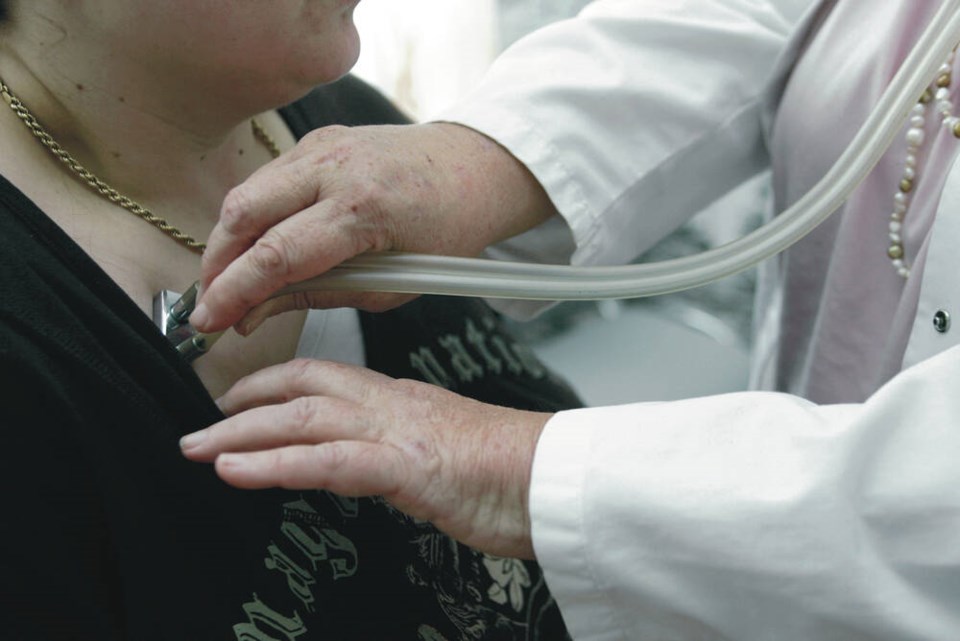I’m somewhat of a rarity in this part of the world — I was born on Vancouver Island and grew up on the Saanich Peninsula, which is where I have chosen both to live and work.
I learned early the importance of getting involved in my community. I began with service clubs, but soon found that I was intrigued by health care.
I joined the board of the Saanich Peninsula Hospital Foundation and began a more than 30-year volunteer career of working alongside professionals to support and fundraise for health care.
I also learned that the Saanich Peninsula, originally a small farming and fishing enclave, developed community strength early in its history. People who lived here fought for what they needed, especially health care.
When Resthaven Hospital, a rehabilitation hospital for First World War veterans, needed to be replaced, residents met with politicians, held public meetings and fought to get a modern hospital.
Their efforts were rewarded in 1974, when the Saanich Peninsula Hospital opened on Mount Newton Cross Road in Saanichton.
However, I know from examining the history of health care in sa国际传媒 that, as Winston Churchill once said, “success is not final.”
Not that long after the ribbon-cutting for our new hospital, subsequent governments began to view Saanich Peninsula Hospital as a potential drain on resources, especially after centralization (in the form of regional health authorities).
On multiple occasions, our community had to fight to keep its hospital.
In the early 2000s, the executive director of our hospital foundation and the hospital’s chief of staff recognized, and then sounded the warning bells, that the pending retirement of local physicians could potentially cripple health care on the Peninsula. And not just care in the community, but at our hospital, too.
Saanich Peninsula Hospital has no hospitalists (doctors contracted by the health authority to work in a hospital on a full-time basis) — it is a “rural” model hospital, and community physicians provide care to admitted patients.
Starting in 2005, hospital foundation board members were introduced to the ideas developing in other parts of sa国际传媒 to assist in the recruitment and retention of physicians — primary health care centres, incentives for physicians and the integration of allied health care workers to support community health care.
We also learned that our provincial government (not just the current one, I must add) sometimes either did not see the need to help or understand how best to provide it.
In 2015, a group of concerned citizens and medical professionals founded Shoreline Medical Society, a non-profit and fully accredited charity. Its purpose was to recruit physicians and ensure all Saanich Peninsula residents had access to a family doctor.
I felt that this work could be the most important on the peninsula since the opening of SPH, so I joined the board of Shoreline Medical Society.
Our board, which is comprised of both community members and health professionals, came together with some innovative physicians who were working simultaneously, but separately, on a similar idea.
Our first site opened in Sidney in 2016. There have been lots of challenges, particularly financial, and we are grateful to the Town of Sidney, the Saanich Peninsula Hospital and Healthcare Foundation, and a select group of donors for help to get established and ensure that we would never need to limit accessibility to care by charging patients additional fees.
Since 2016, we have grown from five founding physicians to 25, expanded facilities in Sidney and opened a second location in Brentwood Bay. We have found physicians for more than 10,000 residents of the Saanich Peninsula, have a total patient panel of 18,000 and have worked diligently with the new Primary Care Network infrastructure to incorporate allied health workers.
However, our work will not be complete until there are no residents of the Saanich Peninsula who do not have access to a family doctor.
All of us at Shoreline Medical Society believe deeply in the concept of universal Medicare, but it is a constant work in progress to maintain Shoreline’s financial viability.
But, we will never charge patients “membership fees” or “continuity fees” in order to access care.
We’d like to hear more from politicians than just words of support. For Canadians, universal Medicare has made health care more accessible and helped to reduce inequities in our society.
It now needs both commitment and investment as well as innovative thinking. We community members will continue to work for the people who are closest to us, our fellow Peninsula residents.
But we are looking for that same commitment, strategic planning and effective forward-looking action from those who are responsible for governing our province and country.



